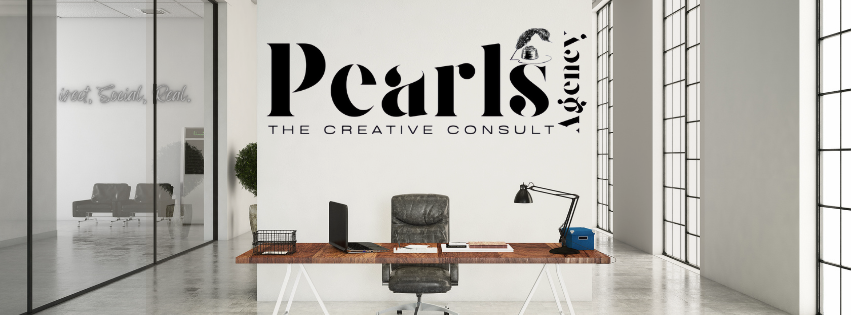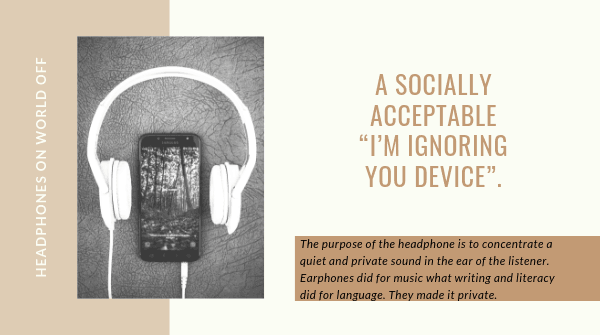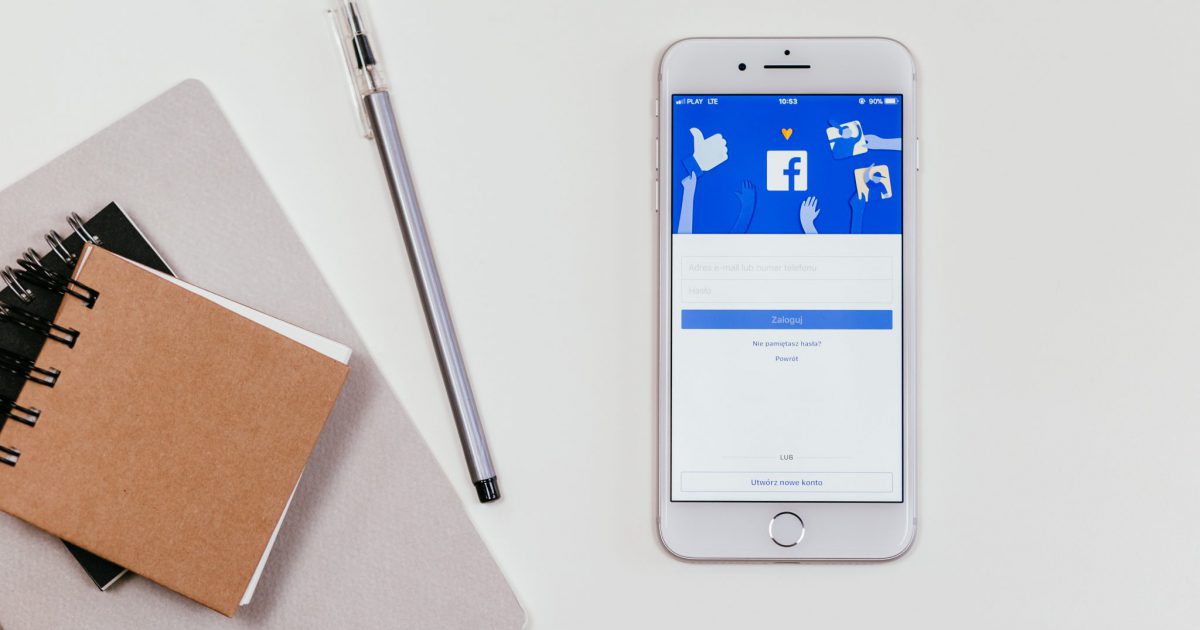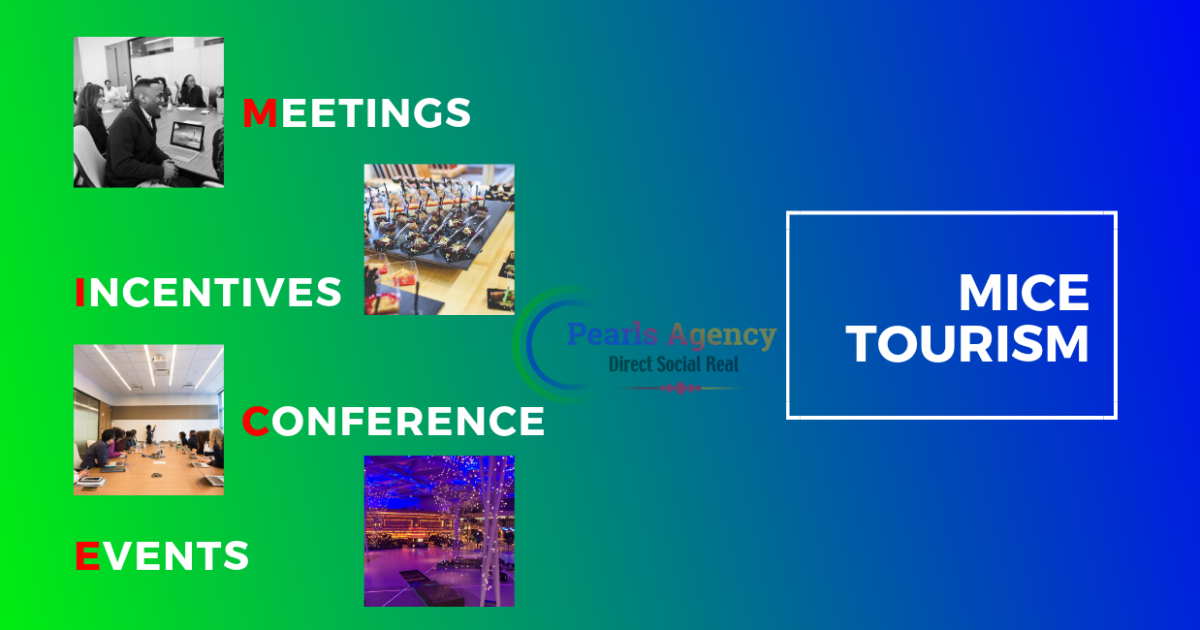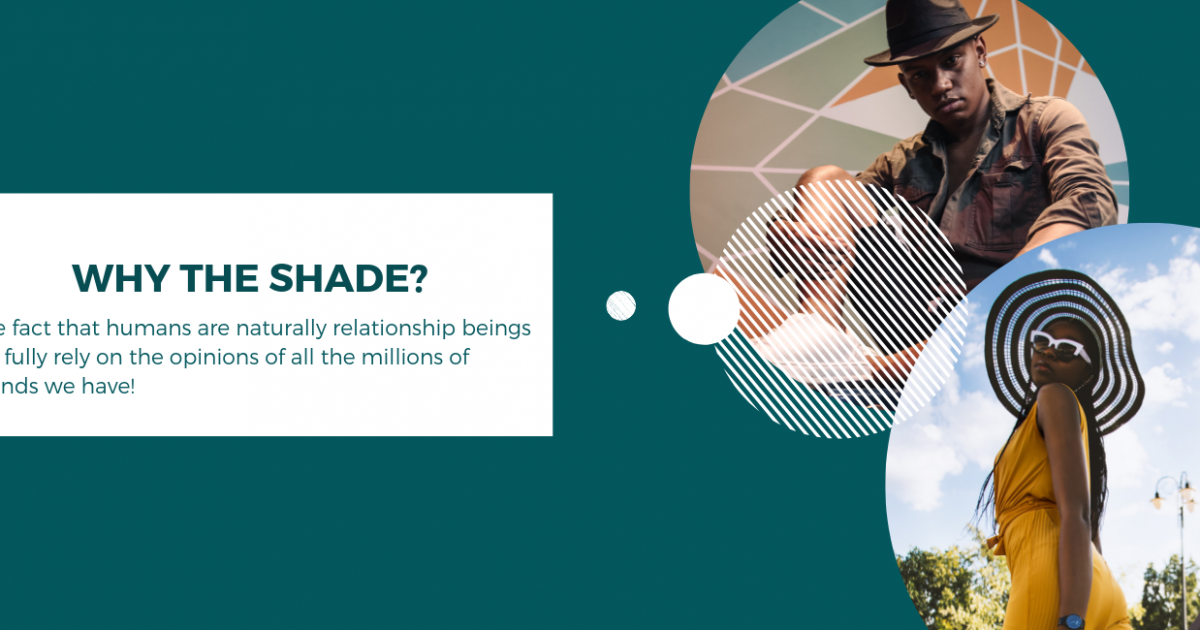The triumph of headphones is that they create, in a public space, an oasis of privacy.
To visit a modern office place is to walk into a room with a dozen songs playing simultaneously but to hear none of them. Up to half of the employees in an institution listen to music on their headphones/earphones, and the vast majority thinks it makes us better at our jobs. Researchers report with confidence that music makes us happier, better at concentrating, and more productive.
Ever wondered why do so many people at work have headphones?
A socially acceptable “I’m ignoring you device”.
If you are reading this on a computer, a tablet or your phone there is an excellent chance that you are wearing, or within arm’s reach of, a pair of headphones or earphones.
Economic answer: The general economy has moved from a farming/manufacturing economy to a service economy, and more jobs “demand higher levels of concentration, reflection and creativity.” This leads to a logistic answer: With 70 percent of office workers in cubicles or open work spaces, it’s more important to create one’s own cocoon of sound. That brings us to a psychological answer: There is evidence that music relaxes our muscles, improves our mood, and can even moderately reduce blood pressure, heart rate, and anxiety. What music steals in acute concentration, it returns to us in the form of good vibes.
That brings us finally to our final cultural answer: Headphones give us absolute control over our audio-environment, allowing us to privatize our public spaces. This is an important development for dense office environments in a service economy. But it also represents nothing less than a fundamental shift in humans’ basic relationship to music.
The purpose of the headphone is to concentrate a quiet and private sound in the ear of the listener. Earphones did for music what writing and literacy did for language. They made it private.

